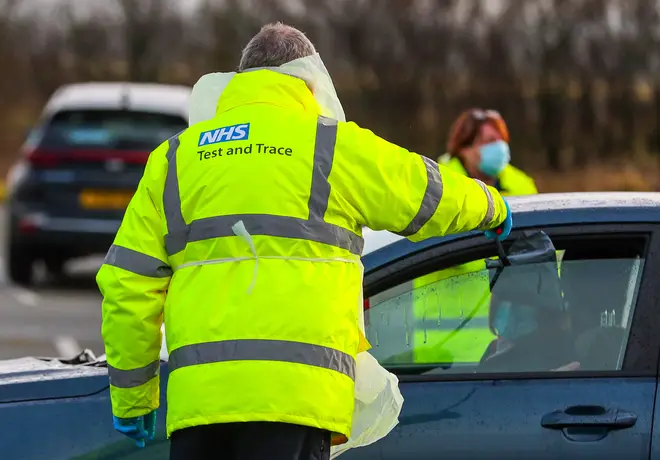
Clive Bull 1am - 4am
16 February 2021, 18:58 | Updated: 16 February 2021, 22:00

Coronavirus surge testing is set to be deployed in Surrey, Norfolk and Southampton after more cases of the South African variant were identified.
Additional testing and genomic sequencing will be rolled out in the IP22 postcode of Norfolk, SO15 in Southampton and parts of Woking covered by the GU22 postcode.
Efforts in Manchester to track down examples of the mutation of the more transmissible Kent variant will also be expanded following deployment of testing teams last week, with the postcode districts of M40 and M9 set to be targeted.
Read more: Covid shielding list: 1.7m people added as experts identify more risk factors
People living within these targeted areas are strongly encouraged to take a Covid-19 test this week, whether they are showing symptoms or not.
People with symptoms should book a test in the usual way, and those without symptoms should visit their local authority website for more information.

Hertfordshire Public Health Director explains surge testing
Laboratory studies have shown that viruses with the E484K mutation, which is found in the South African variant, can escape human defences, making them more efficient at evading natural and vaccine-triggered immunity.
DHSC said surge testing in parts of the London boroughs of Haringey and Merton, along with Sefton in Merseyside, were complete.
"Further data on surge testing will be provided in due course," a spokeswoman said.
Surge testing was previously introduced in south Manchester after a mutation of the more transmissible Kent variant was detected there.
10,000 extra tests were rolled out in the region last week, after four people from two unconnected households were found to be infected with the E484K mutation, which is linked to the Kent strain, Manchester City Council said.
This follows similar surges in testing in Worcestershire, Sefton, Merseyside, and areas in Bristol and south Gloucestershire, after variants were found.